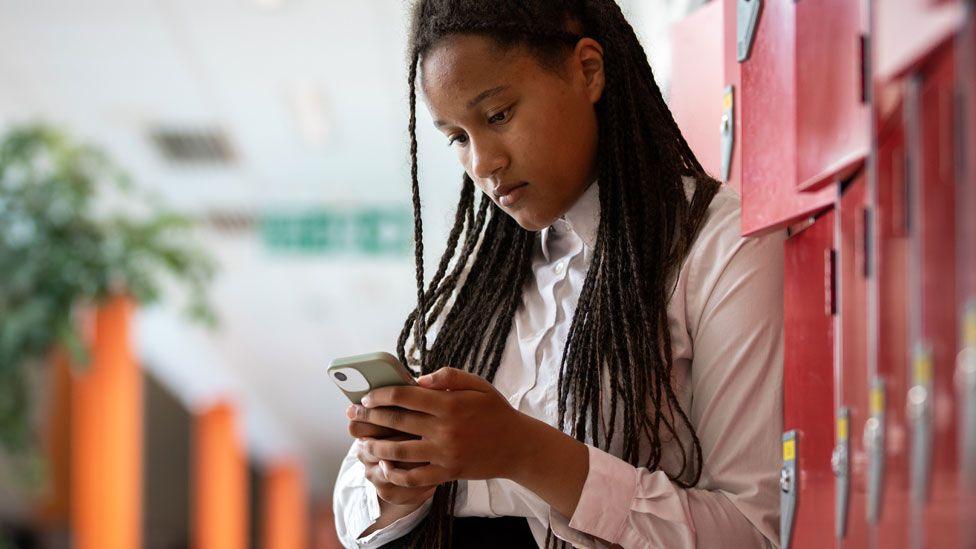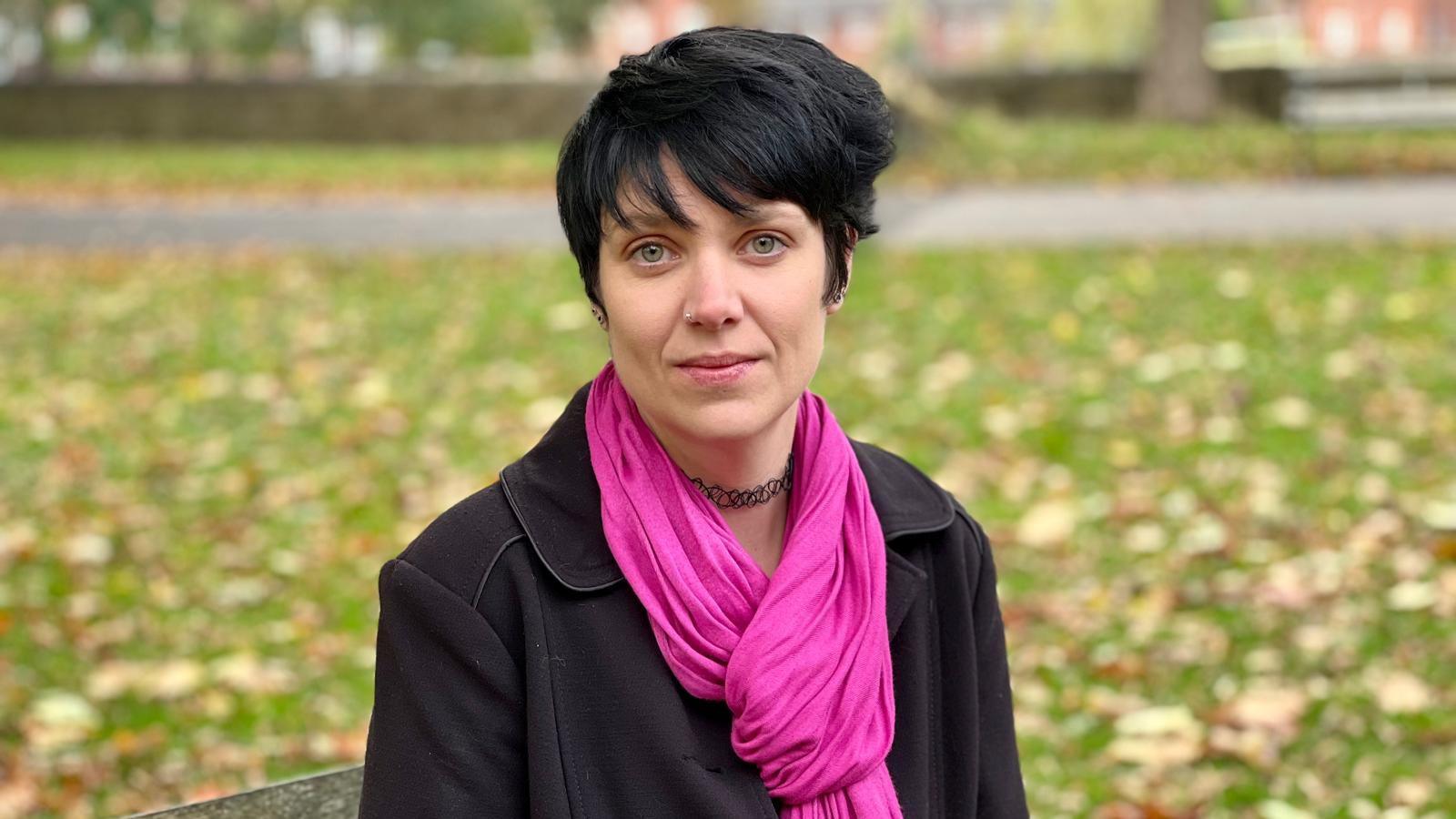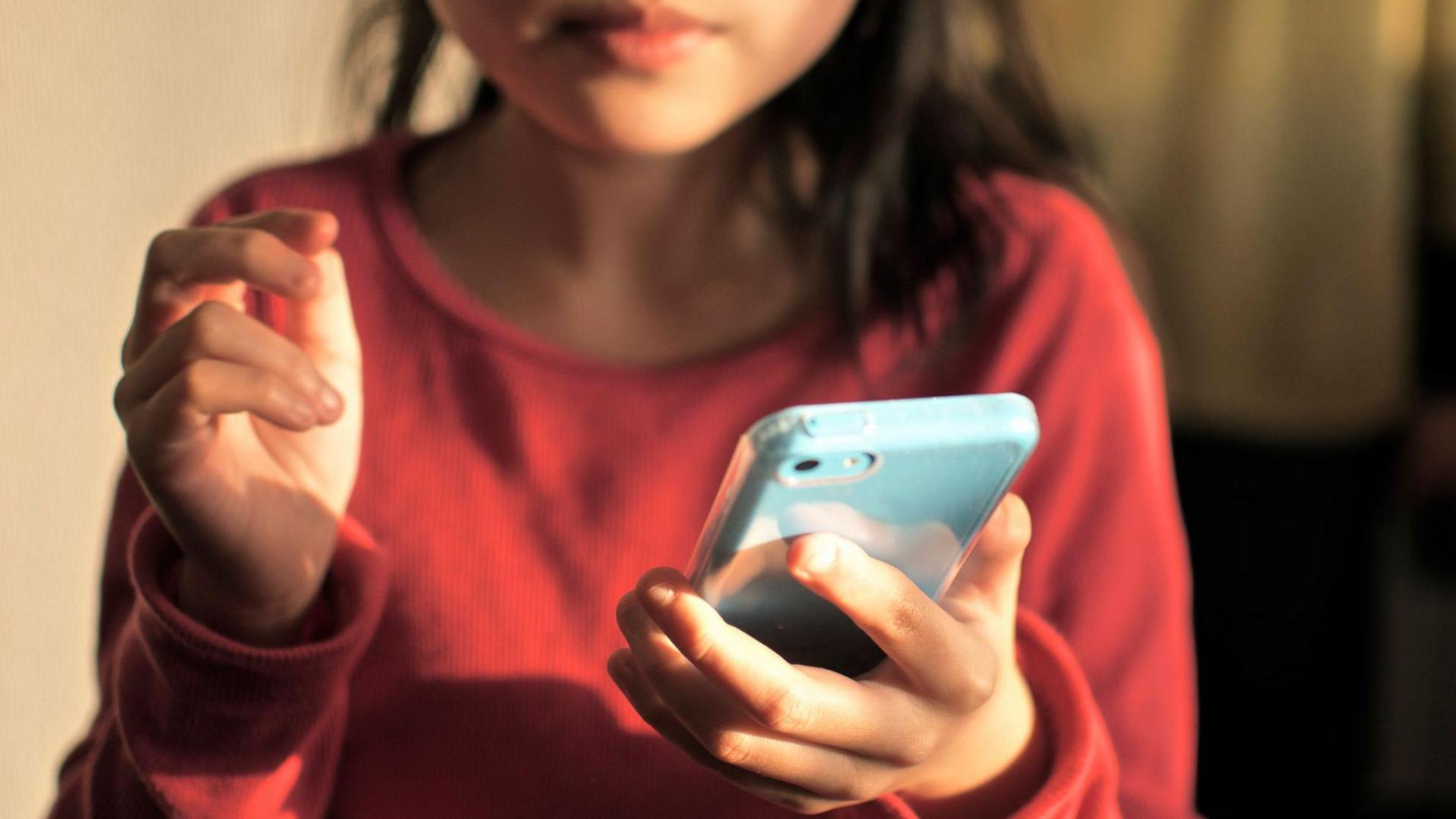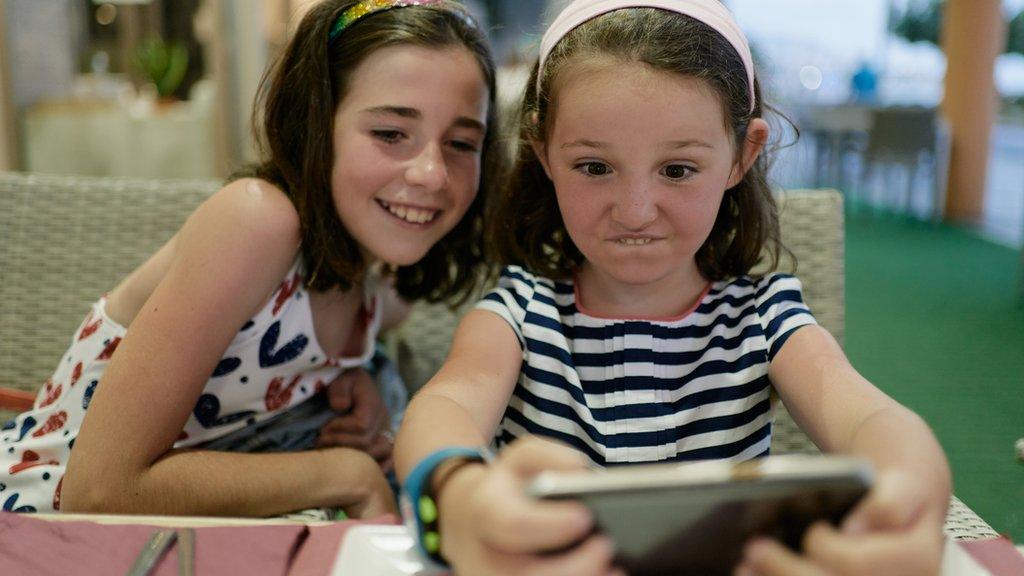Fight begins to make mobile-free schools law

- Published
Calls are growing to ban smartphones in schools in England by law, as education experts and unions back an MP’s attempt to push a new law through Parliament.
Children “doomscrolling for hours a day” is causing widespread harm, according to Josh MacAlister, the Labour MP and former teacher behind the private member's bill being introduced in the House of Commons on Wednesday.
Most schools in England already have a ban or restrictions on phone use, after government guidance was introduced earlier this year.
But Mr MacAlister wants to turn the guidance into law, as well as bringing in what he calls “seatbelt legislation” for children’s social-media use.
MPs could debate the proposals in the new year, if there is enough parliamentary time.
Private members' bills rarely make it into law without government backing but they are an opportunity for backbenchers to raise an issue’s profile.
And the Safer Phones Bill adds momentum to growing calls to restrict children’s smartphone use, with local schools coming together to revise their phone policies and parent groups joining forces to delay giving their child a smartphone.
Some of those in favour of smartphones say they provide good opportunities for child development, including socialising, and there is little evidence supporting restrictions of devices in schools.
Mr MacAlister, the MP for Whitehaven and Workington, is using the bill to call for:
a legal requirement for all schools to be mobile-free zones
the age online companies can receive data consent from children without permission from parents to be raised from 13 to 16
Ofcom’s powers to be strengthened so it can enforce a code of conduct to prevent children being exposed to apps and services “addictive by design”
further regulation of the design, supply, marketing and use of mobile phones by under-16s, if needed
“Countries around the world are now taking bold action and our children risk being left behind,” Mr MacAlister, who previously led an independent review into children’s social care, said.
"It’s time to have the national debate here in the UK."
The bill is being backed by former Conservative Education Secretary Kit Malthouse MP, the current and former children’s commissioners and a coalition of parents’ campaign groups, school leaders, children’s charities and teaching unions.

Year 11 students Emilia and Dewmi were shocked with their school’s decision to ban phones but now fully support the idea
Association of School and College Leaders general secretary Pepe Di’lasio said: “It is not enough to rely solely on parents and schools teaching children about the dangers of smartphones.
“We have reached a point where regulation is required over their sale and the conduct of online platforms.”
Ormiston Chadwick Academy, in Cheshire, became a phone-free school at the start of this term.
Principal Jennifer Lowry-Johnson says the school has always had a no-phone policy, where devices were put away in bags or “out of sight” in blazer pockets, but the distraction was still there.
Now, pupils who bring in a phone must put it in a locked box for the day.
“I have seen a huge increase in the number of students coming to access lunchtime football,” Ms Lowry-Johnson says, as well as fewer students wanting to go to the toilet at breaktime and during lessons “to check notifications”.
“We have already seen over a 50% reduction in the number of safeguarding referrals made with regards to social media and content that we would deem inappropriate," she adds.
'No more social media drama'
When the policy was announced, Year 11 student Emilia could not believe the school was going to take her phone off her but now says: “It's basically taken my anxiety away from me.
“My friend group used to be very volatile, with social media drama," she says.
"It used to kick off between girls.
"Now, we have gotten closer.
"People who used to cause drama no longer have a place to put it.”
Her friend Dewmi agrees and says her parents have noticed she has been studying “a lot more" than before.

Some parents, such as Rebekah Wershbale, from Macclesfield, have decided to delay giving their children smartphones
Rebekah Wershbale, from Macclesfield, has not let her 10-year-old daughter have a smartphone but is worried about her being isolated from her peers.
“It does concern me that she is going to feel like she doesn't have anything in common with them," she says.
"Because if they're spending more time online and she isn't, she's going to feel left behind socially.”
Her daughter hates her no-phone rules and it has become a real point of contention, Ms Wershbale says, but children do not understand how apps are designed to be addictive and banning them in all schools is a “no brainer”.
Social-media companies, including Snapchat and Meta, have previously said they have extra protections for under-18s and help parents control what their children see.
Earlier this month, Instagram also launched Teen Accounts, where 13-15-year-olds are given private accounts by default and protections to help them manage their time on the app.
Meta, Snapchat and TikTok have not responded to BBC News's request for further comment.
Get in touch
Are you a parent or a teacher with views on the issues raised here? Get in touch.
Related topics
- Published10 October 2024

- Published19 April 2024
